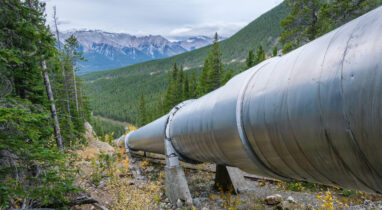Clean Prosperity welcomes one of two changes to Canada’s carbon pricing policy announced yesterday by the federal government, and has concerns about the other.
“The government’s decision to increase the rural top-up on the carbon tax rebate, from 10% to 20%, is a welcome move to increase affordability and fairness for rural Canadians,” said Clean Prosperity Executive Director Michael Bernstein.
“Clean Prosperity has long argued that the carbon tax needs to be fairer for rural households.”
But the government’s second change to carbon pricing policy, temporarily exempting heating oil from the carbon tax, raises concerns.
“All Canadians rightly expect carbon pricing to be fair and affordable. Exempting one group from the carbon tax risks undermining support for Canada’s cornerstone climate policy.”
Clean Prosperity Executive Director Michael Bernstein
“Climate policy needs to be stable and predictable, so that households and businesses can plan. There also needs to be flexibility, but exemptions should be offered only when there are no viable alternatives,” said Bernstein. On this basis Clean Prosperity has argued for carbon-tax exemptions for Canadian farmers, for example.
“All Canadians rightly expect carbon pricing to be fair and affordable. Exempting one group from the carbon tax — people who heat their homes with oil — risks undermining support for Canada’s cornerstone climate policy.”
Instead of only exempting heating oil, the government could consider alternative policy measures, like a temporary means-tested exemption on the carbon tax applicable to all forms of home heating. This kind of approach could better achieve the objective of improving affordability for households during a period of rising costs, while also applying carbon pricing policy fairly to all Canadians.
Further, the government needs to do a better job of communicating to Canadians how the carbon tax and rebate works, in order to address their concerns about the affordability of the policy. Many people still don’t know that the carbon tax is returned to Canadians, that most households come out further ahead financially thanks to the rebate, or that lower-income Canadians benefit the most.
Educating the public about the carbon tax rebate could start with clearer labelling on the direct deposits that Canadians receive quarterly.
“When Canadian households receive carbon tax rebates, the transaction is usually labelled ambiguously on their bank statements,” Bernstein said. “People don’t understand that they’re receiving a carbon tax rebate.”
“The point of the carbon tax is to avoid paying it, while collecting the rebate. If Canadians only see the tax and not the rebate, they’ll naturally have concerns about the affordability of the policy.”
“The government should make the carbon tax rebate more visible, by giving rebate deposits a label that’s easy to understand, like ‘Federal Carbon Price Rebate’.”




